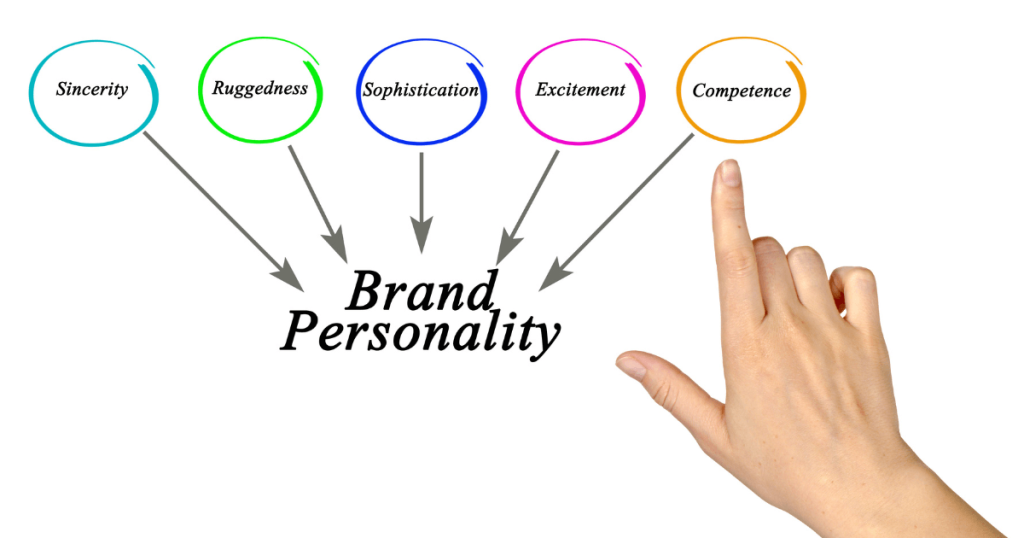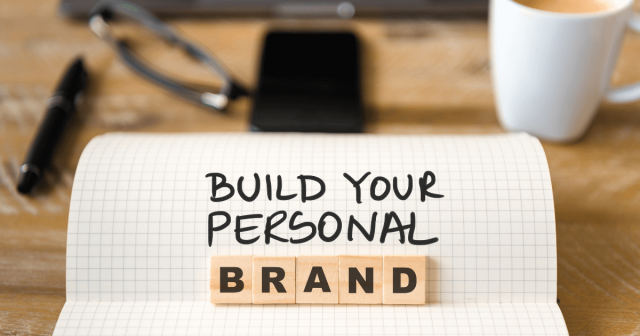Long-lasting relationships with an audience aren’t built on a great product or service alone. It needs to go deeper, hustle, and connect on a personal level. Here’s where brand personality comes into play. But what is brand personality, and why is it such a big deal in marketing?
This blog post will introduce you to brand personality, a tool for brands to shape and differentiate themselves from the crowd, explain the importance of brand personality, outline the five fundamental dimensions that constitute brand personality, and detail how you can create a brand personality for your brand. And we’ll share real-life examples of how successful companies leverage brand personality to win.
Decoding Brand Personality
At its root is a brand personality trait, or in other words, the cluster of human attributes associated with a brand. And like people, brands have “personalities” that determine how they are perceived. These are things that make a brand “friendly” or “approachable”, “professional”, or “authoritative.”
Take Coca-Cola, for example. It practically radiates friendliness, joy, and fun. Now compare that with a brand like Rolex, which exudes elegance and opulence. We feel a certain way toward these brands because of these personalities— and this is the determining factor in how we interact or trust these brands.
A strong brand personality can shape consumer trust and loyalty—just consider how Market Street Brand positions itself and where it’s available for purchase.
Why Brand Personality Matters
Personality is a key consideration for brands, regardless of how much of it is made up of.
A power brand personality not only sets your business apart but also makes people feel something about the goods and services they receive from you. When people buy products, they buy into the stories and the values they are told. You’re more relatable, more memorable and most importantly, you’re more believable when your brand has a personality that matches the personality of the people you want to sell to.
So after we’ve learned the principle, let’s delve into the model that captures brand personality.
The Five Dimensions of Brand Personality

5 Dimensions of Brand Personality
Jennifer Aaker, a psychologist, created a popular framework that classifies brand personality in five fundamental dimensions. Below, a guide to each dimension, with examples to make them come alive.
Sincerity
Authentic brands are considered honest, good, kind, and honest. They gain trust by being real and open. These are the “feel-good” brands, frequently centred on family, values, and trustworthiness.
Example:
Disney: With its strong positive association with wholesome, family-friendly entertainment and happiness, Disney’s persona is all about sincerity.
Excitement
This dimension is about energy, youthfulness and boldness. Exciting Personality — whimsical Brands are often about adventure, innovation, or fun! They are the ones convincing their fans to dare all or live large.
Examples:
Red Bull: Appropriates personality for it to be adrenaline-pumped excursions and high-paced living.
Tesla: With innovation and fun, Tesla carves itself out a strong brand edge.
Competence
Good brands project a sense of trust, and well, intelligence. These are the names you trust when you need reliability and quality. They concentrate on the image of being capable and reliable.
Examples:
Microsoft: With innovative technology solutions, whether for business or personal use, Microsoft makes sure its personality reflects its competency.
Visa: The world’s trusted brand, Visa raises the stakes with safe and seamless transactions.
Sophistication
Elegant brands represent sophistication and luxury, and high-end. exclusive appeal. They cater to dreams — often of exclusivity, status, taste.
Example:
Chanel: The most sophisticated of fashion houses, Chanel pays special attention to luxury details and delivers some exemplary, superior homeware.
Ruggedness
Rugged brands are rough, outdoorsy and durable. They are designed to appeal to people who prize strength and the capacity to take on challenges.
Examples:
Patagonia: Specializing in ethically sourced outdoor clothing, Patagonia brings ruggedness together with environmental responsibility.
Jeep: This is the top choice for adventurers. Jeep represents toughness and reliability.
Each dimension provides different ways for scales to tip in favour of brands as they work to please audiences, provided the route chosen matches the deep DNA of your brand.
Why It’s Important to Define Your Brand Personality

By creating a brand personality, you acquire several competitive benefits that extend beyond the aesthetic. Here is how it can make a difference to the success of your business.
Builds Emotional Connections
According to psychology, humans react to emotional stimuli. When your brand is personable, it creates an emotional bond with your customers, helping to inspire retention.
Encourages Customer Loyalty
A clear brand personality makes you so much more than a commodity. Instead, you become something your customers are trying on for identity, and, with any luck, they stick with you for life.
Sets You Apart
You can either pay your competitors in jobs, or you can compete in the position of building customer relationships.
With too many products to choose from, consumers prefer brands that make them go “Wow!” A strong brand personality differentiates you from others and makes you memorable when people are ready to buy.
If you do it right, the personality of your brand is your secret weapon to winning hearts and wallets. But how do you get started?
Define Your Brand: Personality
It requires making a conscious effort to create a strong brand personality. It’s a strategic effort that involves understanding your audience and matching your business values. Here is a step-by-step guide to defining yours.
Step 1. Analyze Your Audience
Start with audience research. Know who they are, what they want to have, what their lifestyle looks like, and what their pain points are. The more you understand the audience, the easier it is to create a personality that appeals to them.
Step 2. Define Your Core Values
You have to be your brand’s identity and main belief! Think about the values that you want your business to represent and how you would like people to think of it.
Step 3. Find Your Tone of Voice
The way you communicate is a mapped reflection of who you are. Would your sound be playful, professional, inspiring or edgy? Having a consistent look across all channels so your personality shines.
Step 4. Align Your Visual Identity
Your look and feel, including logo, colors, and design, should reflect your personality as a brand. For example, a high-end brand will be design minimally and sleek, whereas a fun, vibrant brand will carry vibrant colors and quirky designs.
Step 5. Test and Refine
Once you have your brand personality in place, test it out on your audience. Make a survey, get feedback, or engage on social media to see if it works.
Take these steps, and your brand will stop being an anonymous corporation and start engaging with people.
Examples of Companies with Strong Brand Personalities in the Real World
Apple
Apple is a lights-out branding education. It is forward-thinking, with a sophisticated personality. Everything from its uncluttered package design to its visionary keynote events screams cutting edge.
Nike
Nike, with its “Just Do It” credo, represents excitement and empowerment. Its ad campaigns have encouraged casual athletes and elite professionals alike to push beyond their limits.
Innocent Drinks
Innocent Drinks With a playful and approachable personality, Innocent Drinks identifies as open, honest, eco-friendly and fun.
These brands not only focused on the what, but also the who, as in who they are, and in being so, made themselves more relatable and memorable.
Harness the Power of Brand Personality
Your brand personality is more than just a spiritual idea; it’s one of the determining factors in how potential buyers see and relate to your business. Not only does a strong brand personality deepen connections, but it also helps you to cut through the noise.
Whether you’re building from the ground up or refining an established brand, putting thought into your brand personality will help you establish your brand in the long term.
Crafting a personality for your business can seem daunting, but you don’t have to do it alone. Begin developing your distinctive voice today, and see your brand grow to something more than just a name – make it unforgettable.




